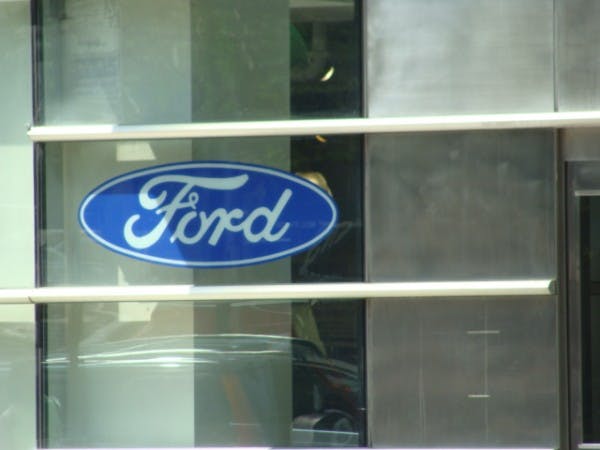If you follow the automotive industry at all, you know that Ford Motor Company (NYSE:F) has been surging of late. It’s come a long way toward returning to its best financial shape in a decade under the reign of CEO Alan Mulally. General Motors Company (NYSE:GM) is a step behind in many respects, but it’s still light years ahead of where it was when it took the government’s bailout.

What if I were to tell you that Japanese rivals have a significant advantage recently, an advantage that can be used in a couple different ways to give Toyota Motor Corporation (ADR) (NYSE:TM) and Honda Motor Co Ltd (ADR) (NYSE:HMC) a leg up on its Detroit counterparts? Let’s check out why Detroit is raising a red flag, and investigate how this perceived advantage will hurt its two top carmakers.
What’s the big deal?
Since Oct. 1, 2012, the yen has fallen 23% against the U.S. dollar. What that really means is that the devalued yen will give Toyota and Honda a significant financial advantage on every single vehicle sold. Toyota exports over 2 million vehicles annually, and when those vehicles enter the U.S. or European market, they become more profitable for the company.
Let’s look at some numbers to give a bit of perspective on what this advantage really equals. Morgan Stanley believes that the devalued yen gives the Japanese automakers a $1,500 financial advantage per car. Detroit believes it to be much more significant; its figure is closer to $5,700 per vehicle. This is money that Detroit can’t afford to match in any price war with the Japanese automakers.
In 2006, when Ford Motor Company (NYSE:F) was in the process of bleeding $12.6 billion for the year, it was losing almost $2,000 on each vehicle it sold. Since then, Ford has made a remarkable turnaround and returned to profitability. Last year, Ford had a net income margin of 4.2% — from $5.6 billion of net income — equaling $840 of profit on a $20,000 vehicle. The difference between Ford’s darkest days and today is that hypothetical $2,840 swing from loss per vehicle to profit. If Toyota uses that $5,700 in financial advantage gained from its currency exchange, it could easily force a price war that Detroit couldn’t afford to compete in for fear of returning to unprofitability.
Options for Toyota
By 2014 Toyota is planning to refresh almost 60% of its vehicles, and with a weakened yen it could potentially load its vehicles with extra features at prices Detroit wouldn’t be able to touch. This would have a drastic affect on market share in Toyota’s favor. It could also conceivably do nothing to its products or prices and simply boost advertising and enjoy a bulging bottom line. This could end Ford Motor Company (NYSE:F) and GM’s recent surge and completely derail them while causing a lot of pain for shareholders.
Here’s what Morgan Stanley analyst Adam Jonas says about the topic:
This is, without a doubt, the biggest change affecting the global auto industry. The dollar versus the weak yen will make the Japanese automakers richer and they can use those profits to target more-aggressive growth. Ford and GM are in their bulls-eye. This is a real threat.
What can Detroit do?
Unfortunately, Detroit isn’t left with too many options. Its lobbyists in Washington are crying bloody murder, which is mostly falling on deaf ears. The U.S. government can’t exactly call out the Japanese for currency manipulation, as that would be akin to the pot calling the kettle black. Detroit can only hope that the politicians can put some pressure on the Japanese or give incentives for them to produce more of their vehicles in North America, which would reduce some of the financial advantage.
Bottom line
There isn’t much that investors can do besides keep a close eye on the value of the Japanese yen. An investor in either Ford or GM would be wise to watch how Toyota and Honda use this advantage. This is a significant development and not something Detroit executives wanted to deal with while trying to make a comeback from the dark days of the recent recession. This won’t deter me from holding on to my shares in Ford Motor Company (NYSE:F). I’m fully trusting that Detroit executives, along with the U.S. government, can find ways to mitigate their disadvantage.
The article Japanese Advantage Set to Derail Ford and GM? originally appeared on Fool.com and is written by Daniel Miller.
Fool contributor Daniel Miller owns shares of Ford. The Motley Fool recommends Ford and General Motors. The Motley Fool owns shares of Ford.
Copyright © 1995 – 2013 The Motley Fool, LLC. All rights reserved. The Motley Fool has a disclosure policy.

